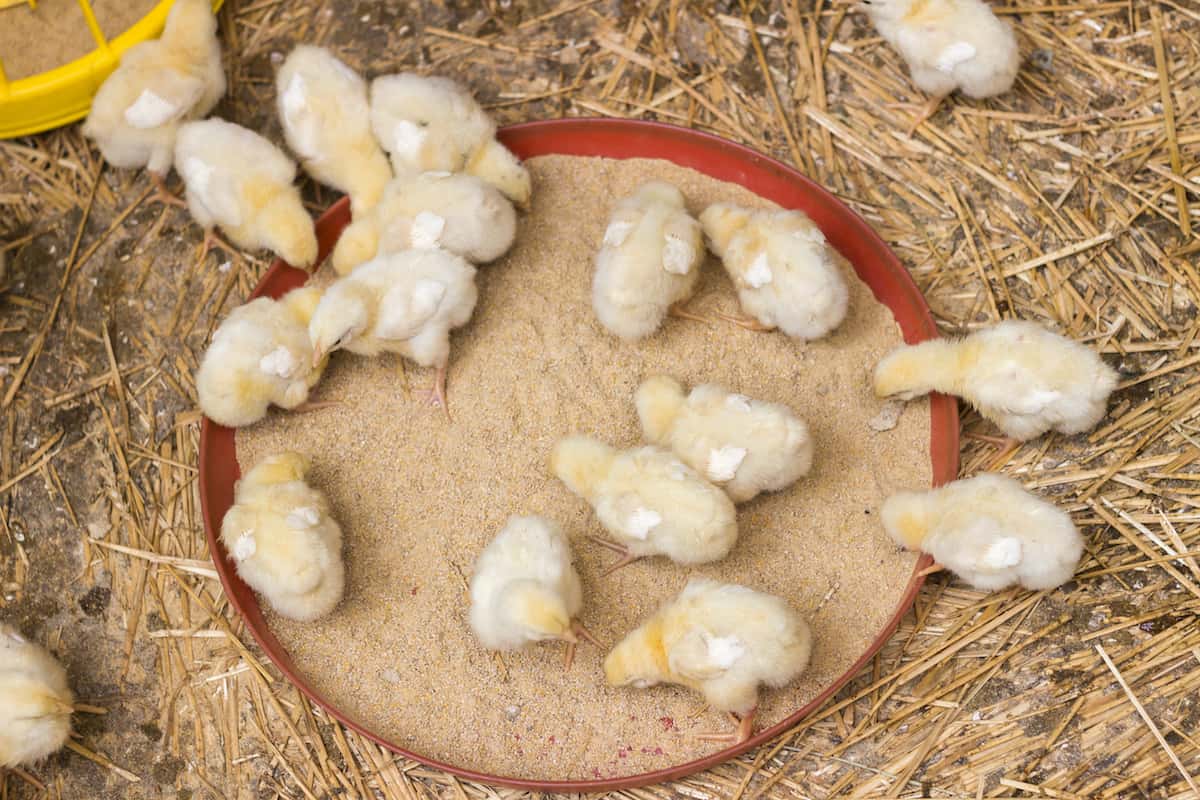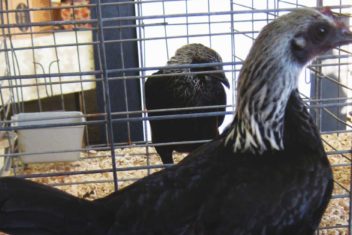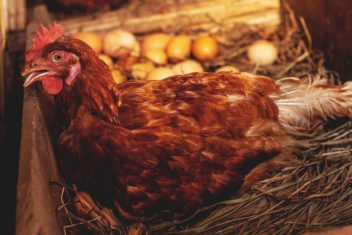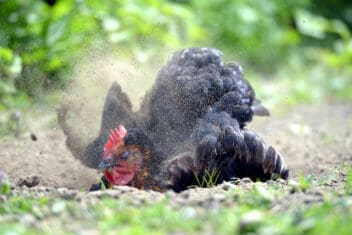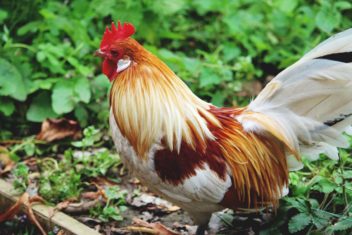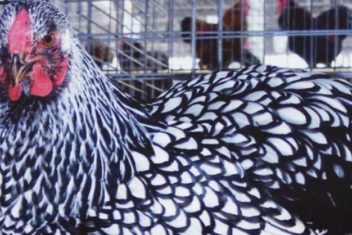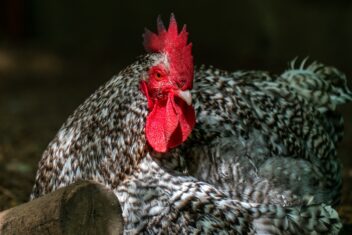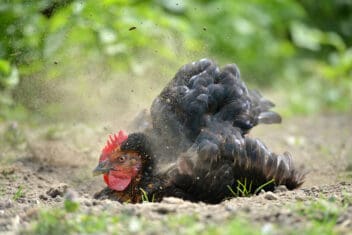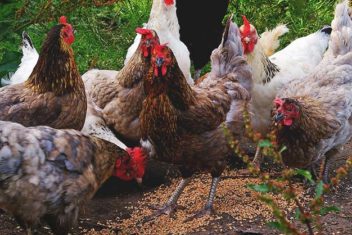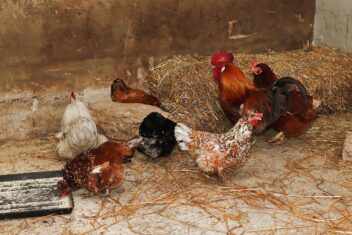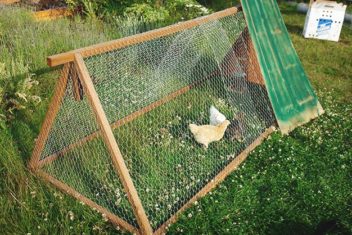If you’re new to raising chicks and chickens, all the lingo and terminology out there might be confusing.
From layer feed to broiler ration, mash to pellet, it can be tough to figure out what to feed your birds.
You may have come across the term “medicated feed” as well.
Medicated feed is often chosen by people who raise chickens to help ward off and prevent certain diseases. It is sometimes more expensive than regular chick starter or chicken feed, so you might be wondering whether you really need it in the first place.
Here’s what you need to know.
What is Medicated Chicken Feed?
Medicated feed is designed specifically for chicks. It helps them fight off coccidiosis, a disease that can be found just about anywhere, regardless of where you live. Usually, medicated starter feeds contain a medication named amprolium.
The medication helps babies fight off oocysts from cocci while they are building their immunity. The term “medicated feed” is a bit of a misnomer, since it doesn’t actually treat a disease but helps to prevent one.
Medicated chick starters use coccidiostats, which help reduce the likelihood of coccidiosis in developing birds. Coccidiosis is a dangerous parasite that lives in the intestines of chickens and other animals. It spreads quickly in the gut before appearing in chicken droppings.
As you likely know, chickens enjoy pecking and scratching around, and once they come into contact with coccidiosis, they will rapidly become infected. They might show symptoms such as lethargy, a reduction in feed consumption, and diarrhea.
Medicated feed is one of the best lines of defense to prevent coccidiosis from appearing.
When is Medicated Feed Necessary?
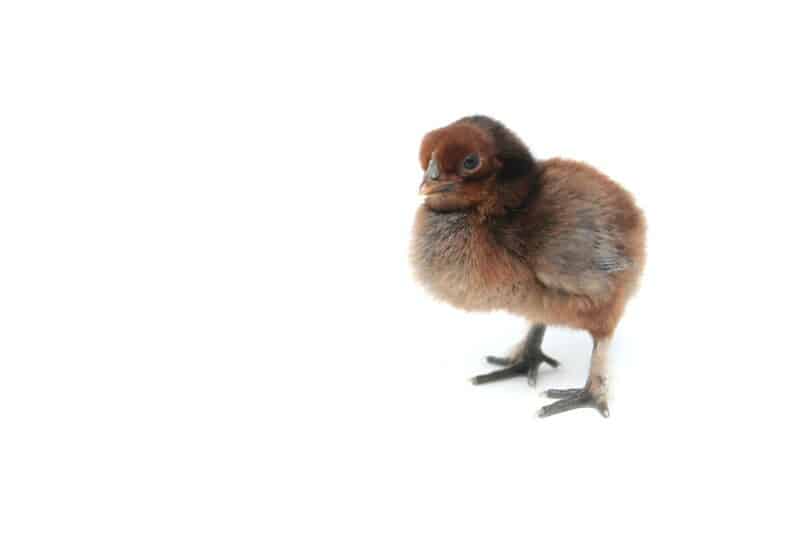
1. Unvaccinated Chicks
Today, most chicks are vaccinated for coccidiosis. However, if you hatch your own and do not vaccinate, this will of course not be the case. If you’re buying chicks from a hatchery, though, you don’t really need to worry about feeding medicated feed.
Your birds will probably have been vaccinated against coccidiosis (check with your hatchery if you aren’t sure).
Interestingly, feeding medicated feed can actually negate the vaccination. It won’t hurt your birds in any way, but it’s something to be aware of nonetheless.
2. Climate Considerations
The parasite responsible for coccidiosis is much more common in hot and humid environments. If you live in a colder area, medicated chick starter or feed probably is not necessary – but it is if you live somewhere that is hot and wet.
3. Large Broods of Chickens All At Once
If you only plan on raising a handful of chickens at a time, you can probably get away without using a medicated chick starter.
However, if you are raising 50 or more chicks at once, particularly those that have not been vaccinated, medicated feed would be a good idea.
4. If Your Flocks Have Suffered from Coccidiosis Before
Coccidiosis, like many other parasites, is incredibly tough to get rid of. Once your chickens suffer from it once, it’s likely to come back and rear its ugly head, time and time again – even after the original chickens have long since left the premises.
Therefore, medicated chick starter might be a good idea for new chickens to help prevent the likelihood of a repeat outbreak.
The Problems with Medicated Feed
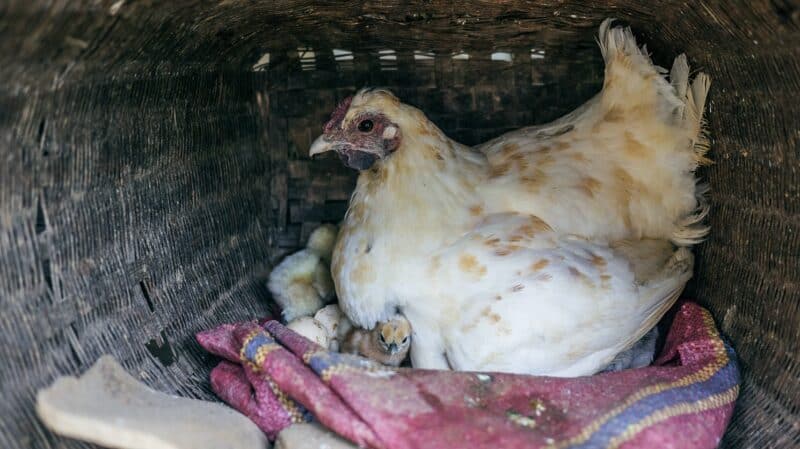
It’s important to note that medicated feed should not be used as a catch-all solution to anything that is causing problems in your chicken coop.
For example, medicated feed will not be effective if you are already experiencing an outbreak of coccidiosis. There are only small amounts of medication in the feed, and all it can do is act as a preventative. If your chickens get coccidiosis, they can’t be treated with medicated feed.
Another problem is that once chickens develop coccidiosis, they eat much less. This means it will be harder to treat any kind of illness with food.
Some people believe that medicated chick starters can be used to prevent other diseases, too. That’s not the case. Medicated feed cannot take the place of a dewormer, nor for any other kind of medication.
Finally, there are some medications used in adult chicken feeds, too, although this is less common. If you feed adult birds medicated feed (which is not generally recommended), you need to be careful.
There is a long withdrawal time and adults can transfer medication to you via their eggs. This might not be good for you. The FDA has cleared the use of amprolium in medicated feed for meat and egg-producing chickens, but I would still exercise caution.
Alternatives to Medicated Feed
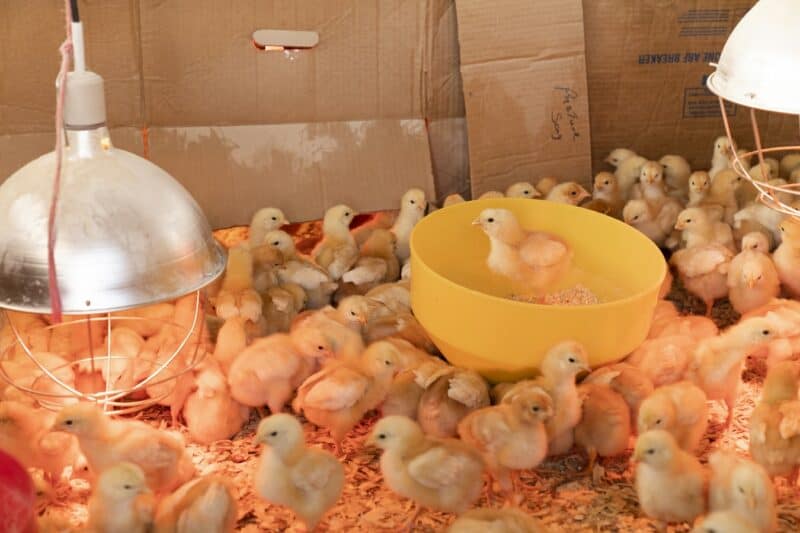
1. Buy Vaccinated Chicks
Buying vaccinated chicks is the best way to prevent coccidiosis if you have any concerns.
Especially if you have never had chickens before or never had an outbreak of coccidiosis on your homestead, keeping it clear of this parasite is a wise decision. As mentioned before, once it is on your farm, it will keep on coming back.
2. Keep Brooder Clean and Dry
Another way to prevent coccidiosis – either with or without the use of medicated feed – is to practice good hygiene on your farm. To begin with, that means keeping your brooding area clean and dry. A wet, dirty environment is a breeding ground for parasites and bacteria.
3. Ample Space
You should always avoid raising chickens in close quarters. Give your birds as much space as possible, both as chicks and as adults. As a general rule of thumb, you should allow seven square inches per chick in the brooder.
Maintain three square feet (at a minimum) in the chicken coop. In an outdoor run, chickens need at least eight square feet.
4. Healthy Habits
There are other methods you can take to control disease on your farm, too, like limiting the access of wild birds to your farm and keeping food stored in tightly sealed containers. In general, the best way to prevent any kind of disease is to practice general good husbandry practices.
How Long Do I Feed Medicated Chick Starter?
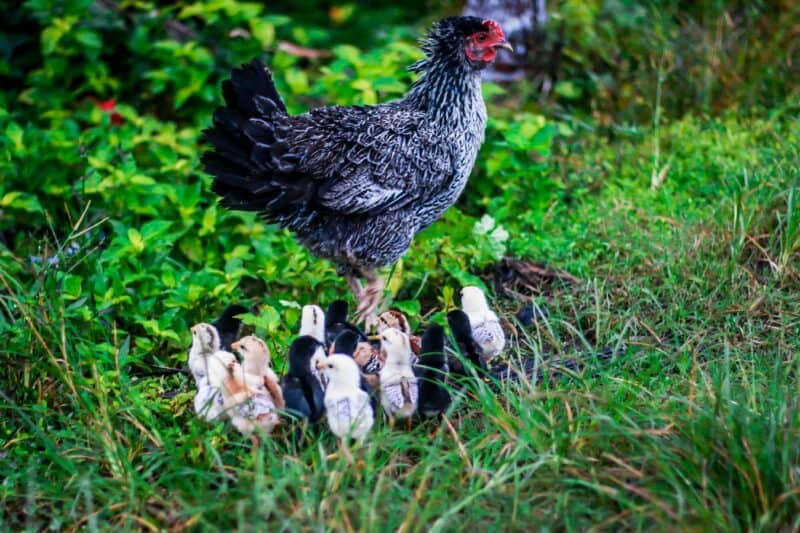
Medicated chick starters don’t need to be fed for the entirety of your chick’s life in order for them to receive benefits. In fact, most people stop feeding medicated feed once their chickens reach two weeks to one month of age.
After this time, there’s not much benefit to feeding medicated chick starter. You can continue to feed it if you so choose, but you’ll be paying extra for zero benefit.
Can Laying Hens Eat Medicated Chick Starter?
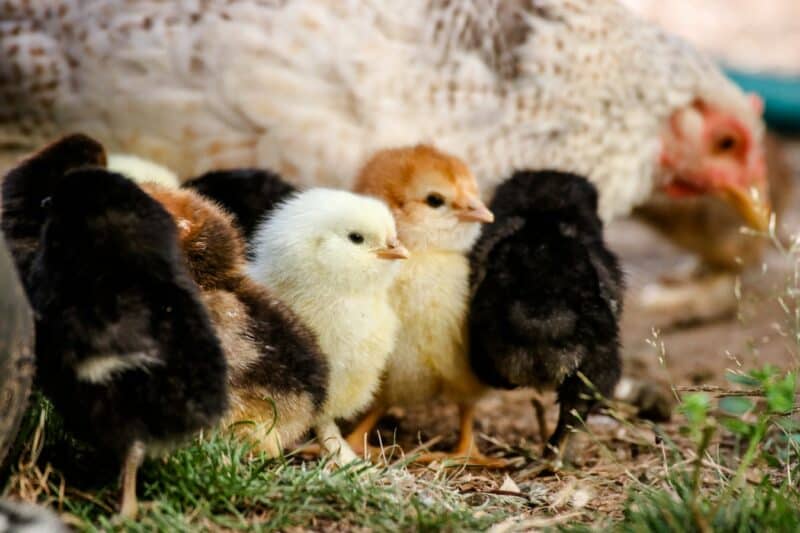
You should not feed your laying hens medicated chick starter on purpose.
Similarly, you shouldn’t be feeding all chickens layer feed since it has too much calcium. Feeding medicated chick starter to laying hens does introduce the risk of the medication being transferred to the eggs, although it’s not clear whether this is problematic or not.
However, if you have to feed a medicated starter in a pinch (for example, if you run out of layer feed and that’s all you have on hand) or if your hens accidentally got into your chicks’ feed, don’t panic. It’s not the end of the world.
Your laying hens won’t suffer from any ill effects. However, it’s not necessary (or advised) to feed them medicated chick starter for long periods of time. Not only does it have medications that they don’t actually need, but it’s more expensive, too.
Plus, when fed in excess, amprolium (the medication found in chick starter) can lead to problems like thiamine deficiency. Thiamine is an essential nutrient that all chickens need – without it, they can suffer from potentially deadly symptoms like tremors. It takes some time for this to occur, so if you’re only feeding a bit of chick starter here and there, it’s nothing to worry about, but be wary of long term use.
Can Ducklings Eat Medicated Chick Starter?
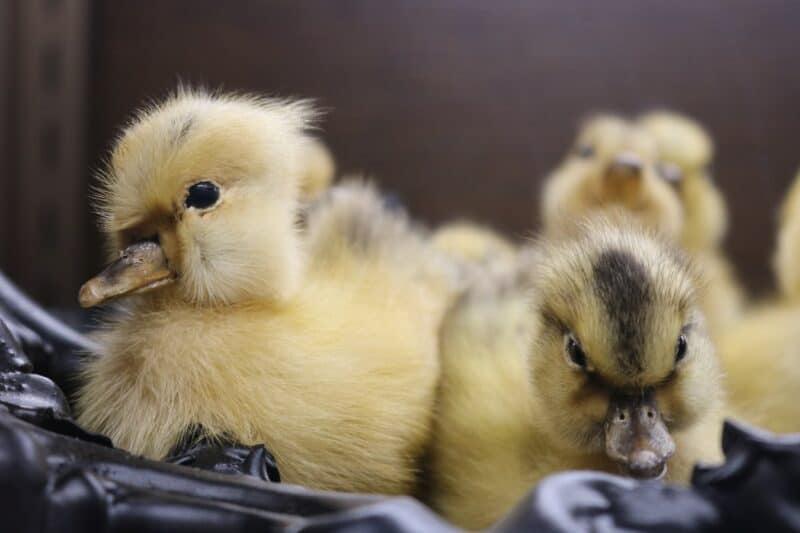
If you are raising both chicks and ducklings, you might be wondering whether it’s possible to feed them the same kind of food. After all, it would make your life a lot easier, wouldn’t it?
Well, you can, with some asterisks. However, ducks don’t run the same risk for coccidiosis as do chicks. Therefore, medicated feed is really unnecessary for ducklings.
Best Medicated Chick Starters on the Market
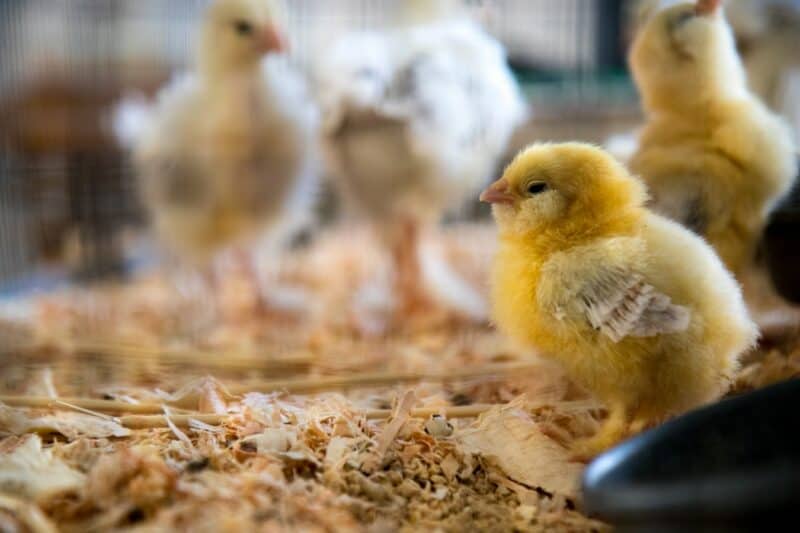
1. Manna Pro Chick Starter
This chick starter by Manna Pro is a good choice if you want to get your chicks started on the right foot. Sold in a 5 lb bag, it’s just the right size for a small flock. It is sold in a crumble formula, which is the perfect size for chicks. It also contains 18% protein, the recommended amount for baby chicks.
2. Purina Start & Grow Starter/Grower Medicated Feed Crumbles
Purina Start & Grow is a great medicated chick starter to consider because it not only contains the medication your chicks need to prevent coccidiosis, but it has beneficial probiotics and prebiotics, too.
These can boost immune and digestive health. It’s a balanced, complete feed with other essential nutrients and amino acids that your chickens need. It can be fed to chicks until they are ready to lay at 20 weeks of age.
3. Country Heritage Medicated Chick Feed Starter Grower Crumbles Feed
Country Heritage Medicated Chick Feed is another excellent feed to consider if you want a medicated feed that will allow you to stick with the same brand for eight weeks or so. It offers a balanced source of nutrients along with a vitamin B12 supplement to lower the likelihood of thiamine deficiency.
Ultimately, it is not entirely necessary for you to feed medicated feed to your chicks. At best, it can serve as a bit of an “insurance policy” or safeguard if you are worried about your birds getting sick.
The reality is that most chicks live and grow just fine without medication – after all, they did so for many years before us humans got involved!
If you are only raising a few chickens on your farm and aren’t raising thousands in factory farm conditions, you can go without medicated feed.
Unless, of course, it gives you peace of mind otherwise!
